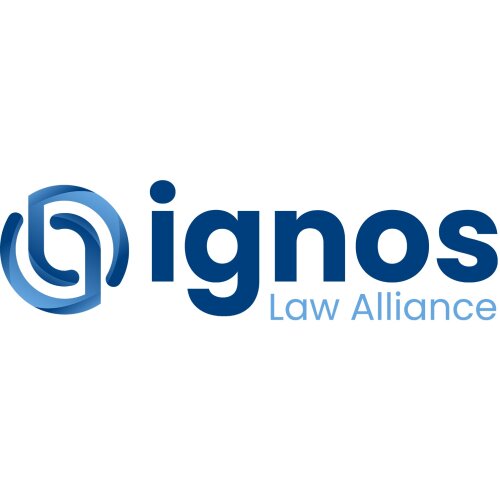Best Wrongful Termination Lawyers in Indonesia
Share your needs with us, get contacted by law firms.
Free. Takes 2 min.
Or refine your search by selecting a city:
List of the best lawyers in Indonesia
About Wrongful Termination Law in Indonesia
Wrongful termination in Indonesia refers to the unlawful dismissal of employees by their employers, in breach of labor laws and employment contracts. The Indonesian labor law, primarily governed by Law No. 13 of 2003 concerning Manpower (commonly referred to as Labor Law), outlines the rights and obligations of both employers and employees, aiming to create a fair balance between labor needs and rights. Wrongful termination can occur when an employer dismisses an employee without just cause or fails to follow proper procedures as mandated by the law.
Why You May Need a Lawyer
There are several situations where individuals may need legal assistance concerning wrongful termination in Indonesia:
- If the termination of employment lacks a valid reason or does not comply with the procedures set by the Indonesian labor law.
- If an employee suspects discrimination or retaliation based on race, religion, gender, or other protected categories.
- If there has been a breach of contract, where the terms regarding termination haven't been adhered to.
- If severance payments, benefits, and other entitlements are not being fulfilled by the employer.
- If there is a need to negotiate settlements or compensation due to wrongful dismissal.
- If there's a need to navigate complex legal processes including mediation, labor court proceedings, or arbitration.
Local Laws Overview
The labor law in Indonesia provides substantial protections against wrongful termination:
- Permissible Grounds for Termination: These include serious misconduct, prolonged illness, or force majeure, among others.
- Termination Procedures: Employers must follow a specific procedure that includes issuing warnings or notifications and sometimes obtaining approval from the Industrial Relations Court.
- Severance Pay: Employees are entitled to severance, service pay, and compensation money depending on their tenure and the reason for dismissal.
- Dispute Resolution: The law provides mechanisms such as bipartite negotiations, mediation through the Ministry of Manpower, and resolution via the Industrial Relations Court.
Frequently Asked Questions
What constitutes wrongful termination in Indonesia?
Wrongful termination occurs when an employee is dismissed without a valid reason, without following due process, or in violation of contractual or statutory obligations.
What are the legal remedies available for wrongful termination?
Legal remedies may include reinstatement, compensation including severance payments, and other damages as warranted by the situation and determined by Indonesian labor authorities or courts.
How is compensation calculated in cases of wrongful termination?
Compensation typically includes severance pay, long-service pay, and compensation rights. These depend on the employee’s length of service and the nature of their termination.
Can an employer terminate an employee without notice?
Employers are generally required to provide notification and may need to follow specific procedures unless the termination is due to gross misconduct.
How long does it take to resolve a wrongful termination case?
The time frame can vary based on complexity, ranging from months up to a few years if cases proceed all the way to the Industrial Relations Court.
What role does the Industrial Relations Court play?
The Industrial Relations Court adjudicates disputes between employers and employees including wrongful termination, interpreting the relevant laws and issuing binding decisions.
Is it mandatory to have a lawyer in a wrongful termination dispute?
While not mandatory, having a lawyer is advised to navigate legal complexities and ensure the protection of rights in a wrongful termination case.
Are there any deadlines for filing wrongful termination claims?
Employees generally have a time limit, usually 1 year from the date of termination, to bring issues to formal mediation or court.
Can foreign workers also claim wrongful termination in Indonesia?
Yes, foreign workers have similar rights under Indonesian labor laws, assuming they have a valid work permit and visa.
How can terminated employees prove their case?
Proving wrongful termination typically involves documenting the absence of just cause, procedural failures, or discriminatory practices, often through emails, notices, or witness testimonials.
Additional Resources
For further assistance and information, consider reaching out to these resources:
- The Ministry of Manpower and Transmigration of the Republic of Indonesia: Offers guidance and mediation services for labor disputes.
- Local legal aid organizations: Often provide free or low-cost legal services to employees in need.
- Professional HR consultants: Can help interpret employment contracts and rights under Indonesian labor laws.
Next Steps
If you believe that you're a victim of wrongful termination in Indonesia, here's how you can proceed:
- Gather Documentation: Collect all relevant documents such as the employment contract, termination letter, and any correspondence with the employer.
- Consult a Lawyer: Seek legal advice to understand your rights and the feasibility of potential claims against the employer.
- Mediation: Consider using mediation services offered by the Ministry of Manpower for an amicable resolution.
- File a Claim: If mediation fails, be prepared to file a claim with the Industrial Relations Court for adjudication.
- Stay Informed: Continue to educate yourself on updates to labor laws and regulations in Indonesia to protect your employment rights.
Lawzana helps you find the best lawyers and law firms in Indonesia through a curated and pre-screened list of qualified legal professionals. Our platform offers rankings and detailed profiles of attorneys and law firms, allowing you to compare based on practice areas, including Wrongful Termination, experience, and client feedback.
Each profile includes a description of the firm's areas of practice, client reviews, team members and partners, year of establishment, spoken languages, office locations, contact information, social media presence, and any published articles or resources. Most firms on our platform speak English and are experienced in both local and international legal matters.
Get a quote from top-rated law firms in Indonesia — quickly, securely, and without unnecessary hassle.
Disclaimer:
The information provided on this page is for general informational purposes only and does not constitute legal advice. While we strive to ensure the accuracy and relevance of the content, legal information may change over time, and interpretations of the law can vary. You should always consult with a qualified legal professional for advice specific to your situation.
We disclaim all liability for actions taken or not taken based on the content of this page. If you believe any information is incorrect or outdated, please contact us, and we will review and update it where appropriate.
Browse wrongful termination law firms by city in Indonesia
Refine your search by selecting a city.















